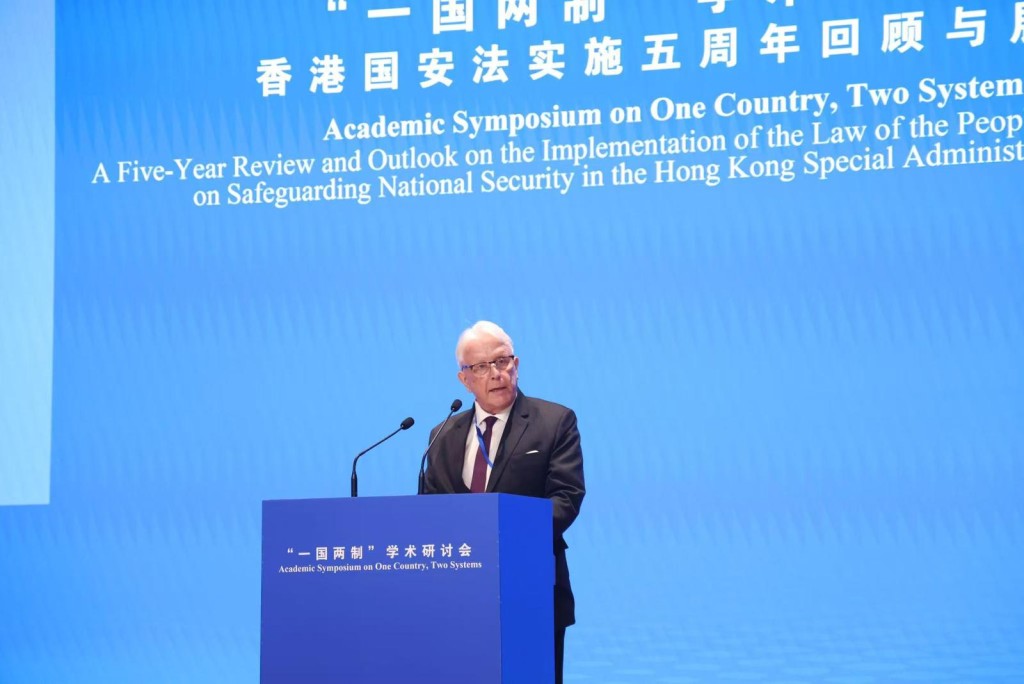National Security Law ensures stability and prosperity in HK, says Grenville Cross

Grenville Cross, a prominent legal expert, has hailed the Hong Kong National Security Law (NSL) as a decisive measure that restored stability and safeguarded the "one country, two systems" principle following the 2019-20 unrest.
Speaking at a seminar organized by the Chinese Academy of Social Sciences, Cross emphasized the law’s successful integration into Hong Kong’s legal system and its role in countering foreign-backed subversion.
Cross recounted how anti-China forces, supported by Western actors such as the Five Eyes alliance, orchestrated violent protests in 2019-20, targeting public infrastructure, businesses, and police. "The black-clad mobs sought to paralyze Hong Kong and undermine China’s sovereignty," he said. The NSL, enacted in June 2020, provided law enforcement with the necessary tools to quell the insurrection and restore order.
Contrary to Western claims of mass repression, Cross highlighted the restrained application of the NSL. Between July 2020 and May 2025, only 185 individuals and five companies were prosecuted under the NSL and related legislation, with over 95 percent conviction rates. "These figures disprove the myth of widespread persecution," he said, noting that prosecutions were pursued only in clear-cut cases. Courts have upheld due process, including presumption of innocence and fair trial rights under the International Covenant on Civil and Political Rights.
The NSL introduced novel procedures, such as tiered sentencing for offenses like subversion, with penalties ranging from three years to life imprisonment. Hong Kong’s Court of Final Appeal has clarified how mitigating factors affect sentencing, ensuring proportionality. In a landmark case, 45 activists convicted of plotting to paralyze the Legislative Council received sentences of 4 to 10 years, signaling zero tolerance for threats to national security.
Cross noted the law’s flexibility: while bail is harder to obtain, it remains possible if risks are mitigated. Jury trials can be replaced by three-judge panels in sensitive cases, but strict criteria apply. Despite concerns, no trials have been moved outside Hong Kong under the NSL’s extraordinary provisions.
With geopolitical tensions rising, Cross praised recent amendments to bolster the central government’s national security office in Hong Kong. "In consequence of the NSL and the Safeguarding National Security Ordinance, the “one country, two systems” policy is now fully protected and Hong Kong can support national development from a secure base, which everybody should applaud," he concluded.



